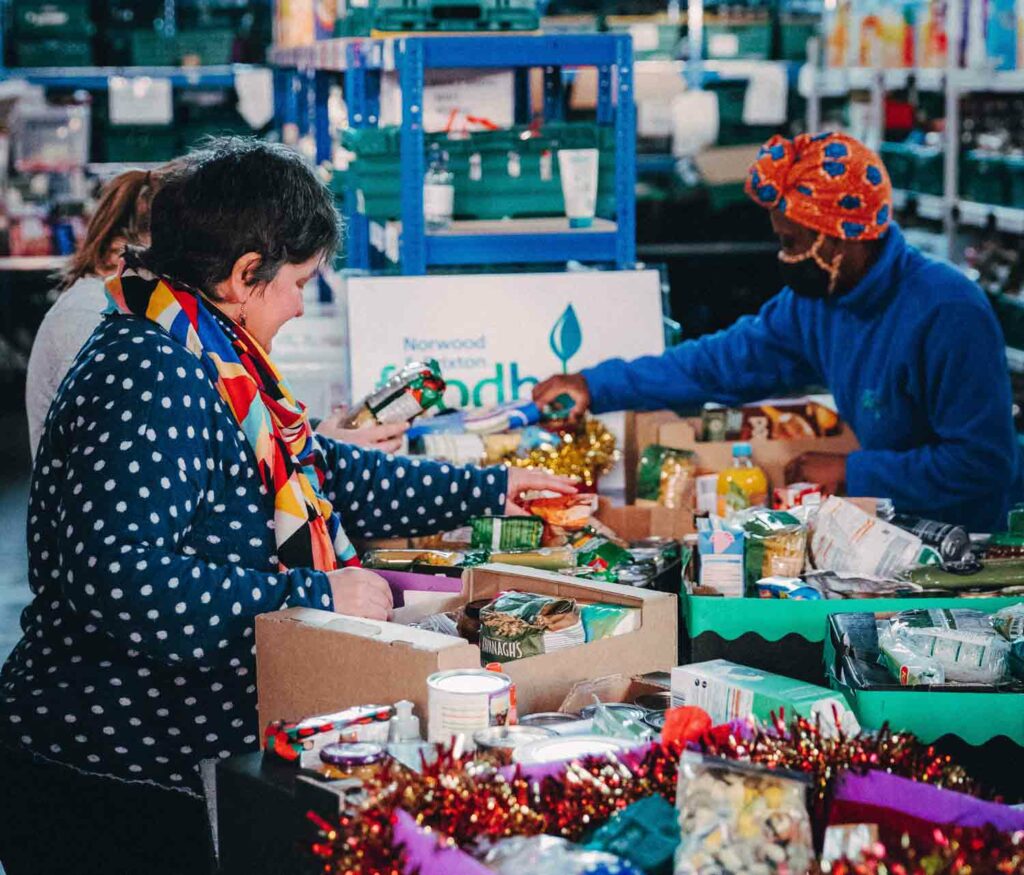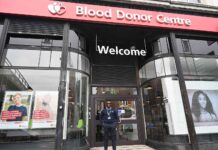
Lambeth food banks provided nearly 22,000 emergency food parcels between April 2021 and March 2022, and more than 8,000 of them went to children.
This is a 15% increase on the previous 12 months.
The Lambeth Food Bank Partnership believes the increase in people needing support is due multiple factors, including their finances being hit by the increasing cost of living and the impact of last year’s £20 a week cut from Universal Credit payments.
Local residents Maureen and Philip have only used a food bank once, but fear they will need to use the service again soon.
“We have always budgeted really well,” said Philip. “I cannot work due to my health condition and my wife only works two days a week.
“Since the energy price rise, we have been really struggling and don’t know which bills to prioritise.
“We are on the breadline now and must make difficult choices each month.
“We are proud and don’t want to use the food bank, but we may have no choice.”
The local Norwood and Brixton food bank is part of the Trussell Trust network, which recently experienced its busiest winter outside of the height of the pandemic in 2020.
Food banks in the Trussell Trust network provided more than 2.1 million parcels to people on the lowest incomes across the UK between 1 April 2021 and 31 March this year.
This national figure is a 14% increase on pre-pandemic figures in 2019-20 as more and more people across the country are unable to afford the essentials to eat and to stay warm, dry and clean.
The need for food banks in the Trussell Trust network has grown rapidly over the past six months, and food bank managers are warning of a growing crisis:
July – September 2021 saw a 10% increase in comparison to the same period in 2019
October – December 2021 saw a 17% increase in comparison to the same period in 2019
January – February 2022 saw a 22% increase in comparison to the same period in 2020
The Lambeth Food Bank Partnership said it was clear clear that its team would always do all they can to help people in the community – but that they cannot, and should not, be needing to distribute emergency food parcels on this scale.
Elizabeth Maytom, Norwood and Brixton Food bank project lead, said: “There’ll always be a role for strong community groups looking out for their neighbours, and we’re so grateful for the generous support of our volunteers and to local people who have donated to the food bank.
“Together, you’ve made sure that local people who can’t afford the essentials don’t face hunger.
“The support we see across the community for people on the lowest incomes is incredible. But it shouldn’t be needed. We should all be free from hunger.
“No one should be pushed deeper into poverty without enough money for the things we all need. It’s not right that anyone in Lambeth needs our food bank in the first place – everyone should be able to afford the essentials.
“At the moment the situation is only set to get worse, as this is just the start of the cost of living crisis.
“But we know what’s pushing people to need food banks like ours, so we know what needs to be done.
“People cannot afford to wait any longer for support – UK, national and local governments at all levels must use their powers and take urgent action now to strengthen our social security system so it keeps up with the true cost of living.”
The Lambeth Food Bank Partnership was established at the start of the pandemic in 2020 and consists of the Norwood and Brixton food bank, Vauxhall food bank, Waterloo food bank and the Clapham Park food bank.
Each of them has been providing emergency food and support to local people since around 2010.
Detailed figures
| 1 April 2021 – 31 March 2022 | ||||
| Number of parcels distributed | To adults | To children | Total | % change since 2019-20 |
| Trussell Trust UK network | 1,341,049 | 832,109 | 2,173,158 | +14% |
| Lambeth Food Bank Partnership | 13,930 | 8,016 | 21,946 | +15% |






